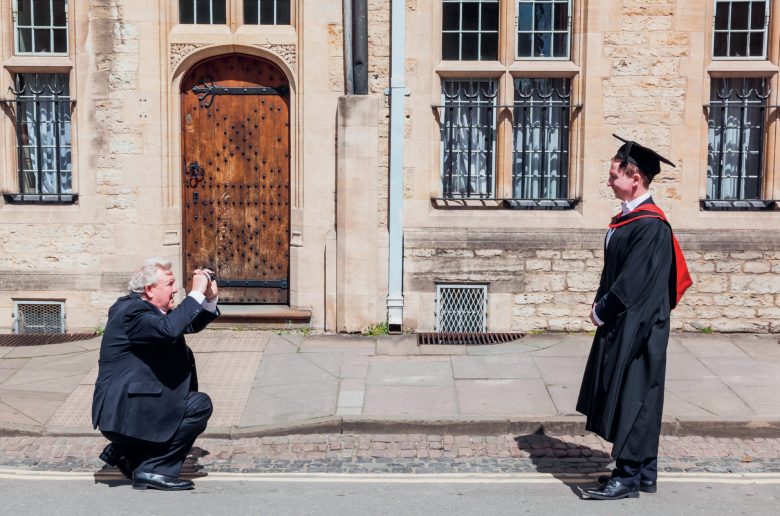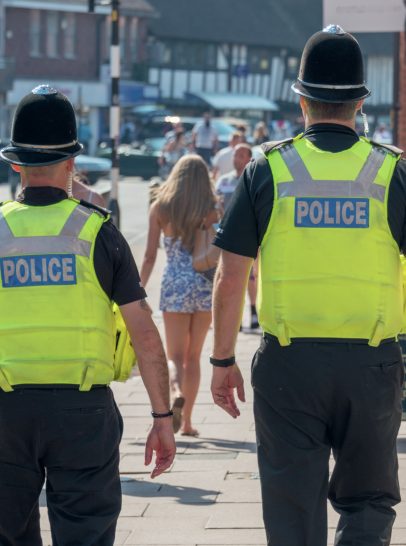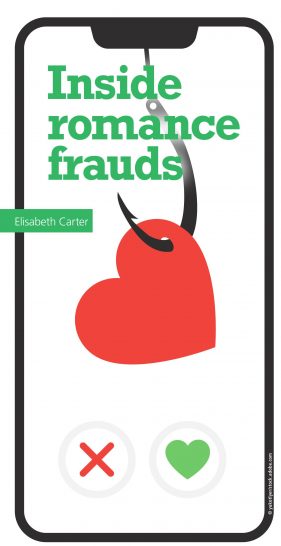Gender, inequality and reality TV
What role do dating apps, social media and reality programmes such as Love Island play in the perpetuation of inequalities and ‘sexual racism’?
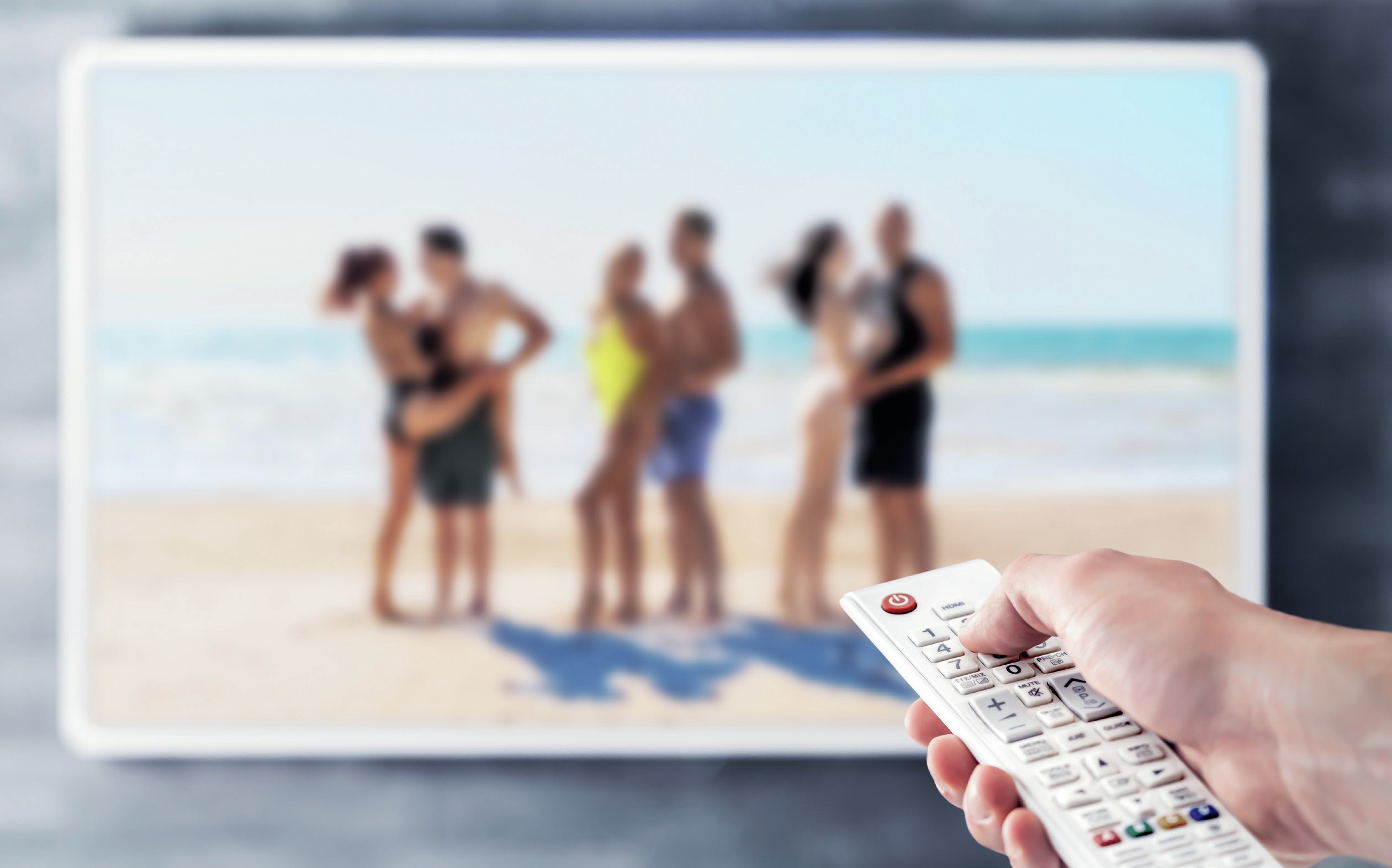
EXAM LINKS
■ Media
■ Gender
■ Social inequality
It seems that over the past few years reality television shows based on dating and romance have taken over our TV screens. From The Bachelor to Married at First Sight, such programmes are now ‘reigning supreme’ in the world of television, at least according to Cosmopolitan magazine.
While romantic reality television formats are nothing new (the ITV show Blind Date was a Saturday night staple in the 1980s and 1990s), the genre is now increasingly popular and growing in unprecedented ways. In the UK, for example, Love Island has become a veritable cultural phenomenon, achieving colossal viewing figures for ITV, particularly among young people. This is in an era when public service broadcasters are otherwise struggling to appeal to this viewing demographic.
So, why is it that this genre commands so much cultural attention and power right now? And what sociological insights can these programmes grant us about inequality, race and power?
Sociology, emotions and reality TV
It is fair to say that love, romance and heartbreak are not the traditional subjects of sociology. Within academic disciplines, these realms of life have mostly been viewed as ‘private’, individual matters without wider public, political or social significance. As the feminist sociologist Eva Illouz points out, most social-scientific research has been concerned with largescale ‘social suffering’, such as that which results from war, famine or poverty (2012).
But Illouz also argues that sociologists should pay attention to the less tangible, less visible, forms of what she terms ‘psychic suffering’ — those feelings of anxiety, depression and worthlessness which are so often experienced in our everyday, ordinary worlds. Sexuality and dating are arenas of life in which psychic suffering is often felt most intensely. Illouz argues that this kind of emotional pain is now experienced more acutely than it ever has been before.
This is perhaps unsurprising when we consider how our intensely mediated culture often values people, and especially women, for their visual appearance and sexual attractiveness above all else. While psychic suffering is experienced at the individual level, it is very much connected to structural issues produced by capitalism, including economic inequality, insecurity and precarity.
In other words, while our emotional pain feels personal, its causes are political. The political theorist Wendy Brown (2004) argues that our cultural obsession with marriage and coupledom must be understood in a broader context, where other sources of social and material security are in fast retreat. Marriage and the family are now ‘expected to hold every flower in the bouquet of personal happiness and fulfilment’.
Romance and sexual capital
It is therefore perhaps unsurprising that, in a world where traditional sources of material security (such as a stable career and affordable housing) are being taken away, and in which feelings of loneliness and alienation are on the rise, we are looking more and more to romantic love to fill the gap. Sexual and romantic pursuits form the one area of life which still promises us emotional fulfilment, and where we might still hope for personal success and a degree of control over our lives, when the wider world is otherwise so unpredictable.
The growing cultural emphasis on love and romance creates new forms of inequality, hierarchy and suffering. This is because, in contemporary social conditions, those people without ‘sexual capital’ are likely to experience feelings of low self-worth or humiliation (Illouz 2019). For example, even though Love Island participants are ostensibly ‘ordinary’ people, the whole premise of the show is to reward those who are exceptionally sexually attractive and romantically successful — who can ‘turn heads’ and ‘crack on’, and avoid getting ‘mugged off’ or ‘pied’.
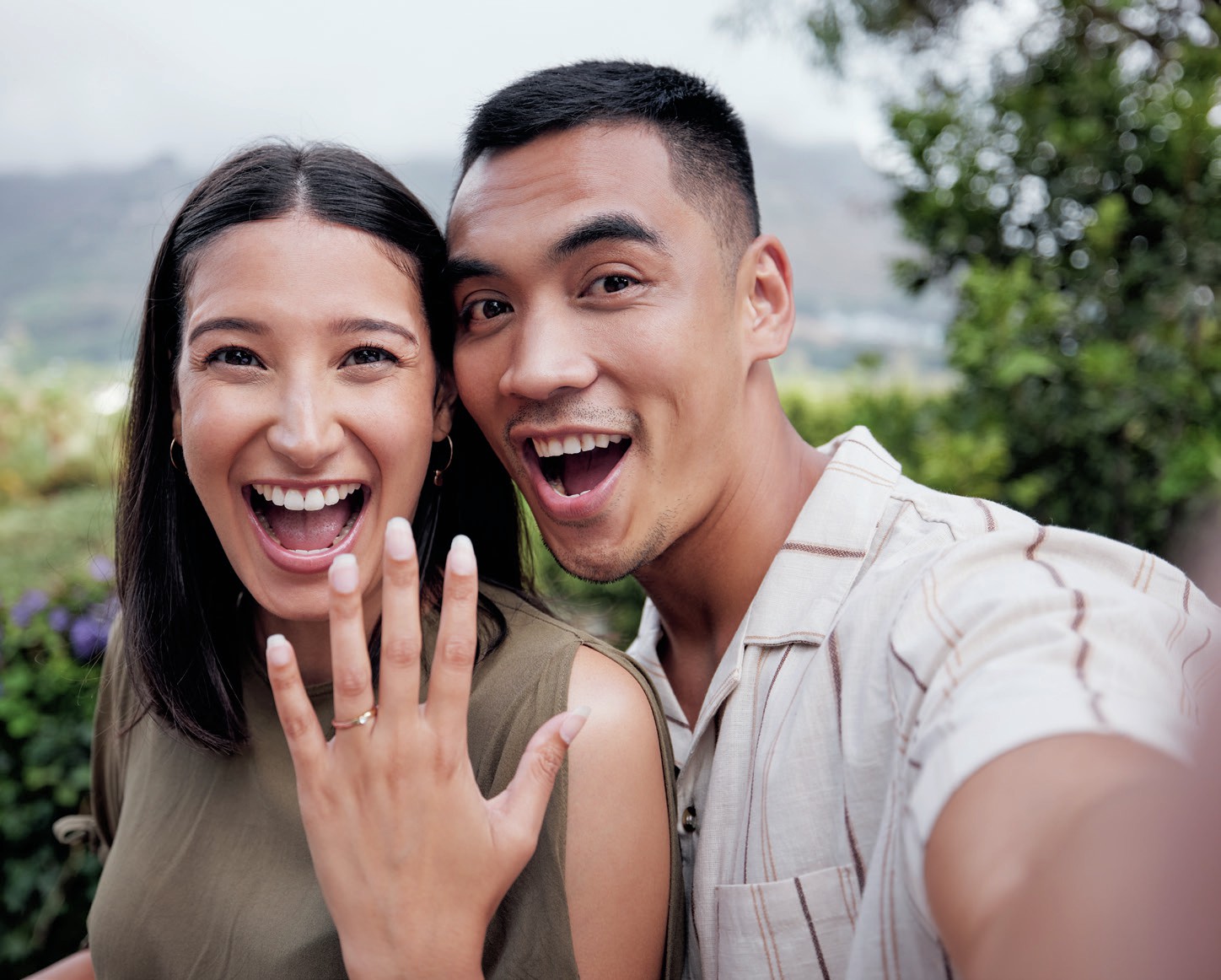
And, of course, it is not just reality television where this increasing need for ‘sexual capital’ is evident. As the feminist philosopher Amia Srinivasan (2018) argues, in online dating, people’s value is most often reduced to superficial categories of ‘face, height, weight, age, race, witty tagline’ and this has ‘arguably taken what is worst about the current state of sexuality and institutionalised it on our screens’.
In other words, if you don’t obviously and instantly conform to what is considered to be sexually attractive and personally successful, you are likely to find contemporary dating a difficult experience. Love and romance have become like a game in which most people feel like they are losing, or like a marketplace in which they feel they have little value.
Consumption and dating in the digital age
It is quite easy to understand that the rise of digital media, with its relentless conflation of personal appearance with human worth, is part of the reason for this intensified ‘psychic suffering’. But feminist scholars of sociology, media and cultural studies often invite us to consider our feelings of low self-worth in relation to the less obvious role of capitalism and material inequality (Kay et al. 2019).
Sociologists and media theorists have argued that the logics of capitalism are now firmly embedded within dating in the digital age. We find ourselves in competition with one another in the dating ‘marketplace’, a site where we must constantly work on ourselves so that we are romantic ‘winners’ and not ‘losers’.
On Love Island, participants talk a lot about ‘window shopping’ for potential partners, underlining how deeply the logics of consumerism and the marketplace have seeped into our romantic thinking and behaviour. Perhaps romantic partners have become like consumer goods — we shop around for the best deal, and dispose of them when we find a better, newer, model to which we can upgrade.
Thinking about love and romance sociologically can help us to see how the pain of feeling romantically rejected, used or unvalued, are not merely private problems, but are fundamentally connected to broader social arrangements and structures of inequality.
Increasingly, social science research shows how the algorithms within dating apps actively reproduce and exacerbate racism, ableism and other forms of prejudice and social injustice (Hutson et al. 2018).
Sexual racism and reality TV
Sonu Bedi (2015) argues that digital dating perpetuates ‘sexual racism’, reinforcing whiteness as the sexual and romantic ideal of desirability. This form of ‘private’ racism, Bedi argues, is part of structural racial inequality more broadly, and it has material consequences for people’s lives, denying many the chance to participate in an affirming, reciprocal romantic relationship.
In recent years, there has been controversy around Love Island because men and women of colour, and most particularly black women, tend to have much worse experiences on the show than its white participants. Samira Mighty, a black woman who appeared in 2018, has called out the show for the way it treats black women as ‘tokens’ and that they tend to get much less attention from the men who take part, as well as less airtime.
In 2022, perhaps in an attempt to avoid the spectacle of ‘sexual racism’ that is so often apparent in contestants’ choices, producers introduced a brand-new twist in the format: for the first time, the initial ‘coupling up’ in the opening episode was decided by a public vote, rather than by the participants themselves. However, in trying to override the potential prejudices of contestants, racialised patterns in the couplings persisted; the public paired up white men with white women, and black men with black women, leading to an obviously racialised division between the couples, and accusations of ‘segregation’.
From a sociological perspective, this poses some challenging questions. What role do reality programmes such as Love Island, as well as dating apps and social media, play in the perpetuation of ‘sexual racism’? What responsibilities do media companies and platforms have to their users, and how might they be made more inclusive?
There have been many calls to change the formats of reality television shows, as well as to alter the algorithms of dating apps, which currently overwhelmingly idealise whiteness. For example, some people have suggested that Love Island should look more closely and critically at the dating histories of the people who apply to take part.
This is because while very few people would openly admit to being racially exclusionary when it comes to selecting romantic partners, if (for example) a white man has only ever dated white, blonde women in his life, then it is reasonable to assume that this pattern in his preferences might continue on the show. Selecting participants who have demonstrated a less exclusionary approach to dating might make for a less ‘segregated’ show.

Using reality TV to challenge inequalities
But how much potential for change do these kinds of ‘tweaks’ or ‘quick fixes’ actually have? Can popular shows like Love Island ever be spaces where the deep, underlying causes of injustice and inequality, such as racism, misogyny and capitalism, are meaningfully challenged? The 2022 coupling ‘twist’ — and its failure to destabilise problematic, racialised assumptions and patterns in dating — shows that racism is a much wider and more deeply ingrained social issue, and that the problem goes far beyond the format of any one show.
Maybe this should direct us to consider how racism pervades every sphere and institution of contemporary life — not only sex and romance, but also housing, education, work and healthcare. An ability to meaningfully address the problem will require major structural transformations of the entire economy, culture and society.
For some people, Love Island — and the myriad other dating shows that crowd our screens — can play a productive and positive role when it comes to race, dating and inequality. As highly popular media texts viewed by millions and then discussed in great detail both online and offline, they put questions about race, inequality and ethics on the public agenda.
By making ‘sexual racism’ so publicly and undeniably visible, they can help to show that what we think of as our own ‘private’ preferences and desires are, in fact, deeply connected to wider social inequalities. They help to show that the personal is political. They can prompt conversations about what we as individuals, and as a society, should do about these inequalities.
Indeed, during and after broadcasts of Love Island, Twitter is often awash with debates about the ethics of contestants’ behaviour. While the show has been criticised for the on-screen prevalence of ‘gaslighting’ within relationships, its misogyny, sexism and emotional abuse, it has also been praised as a public space that opens up conversations about these issues — issues which are often not part of the public political agenda.
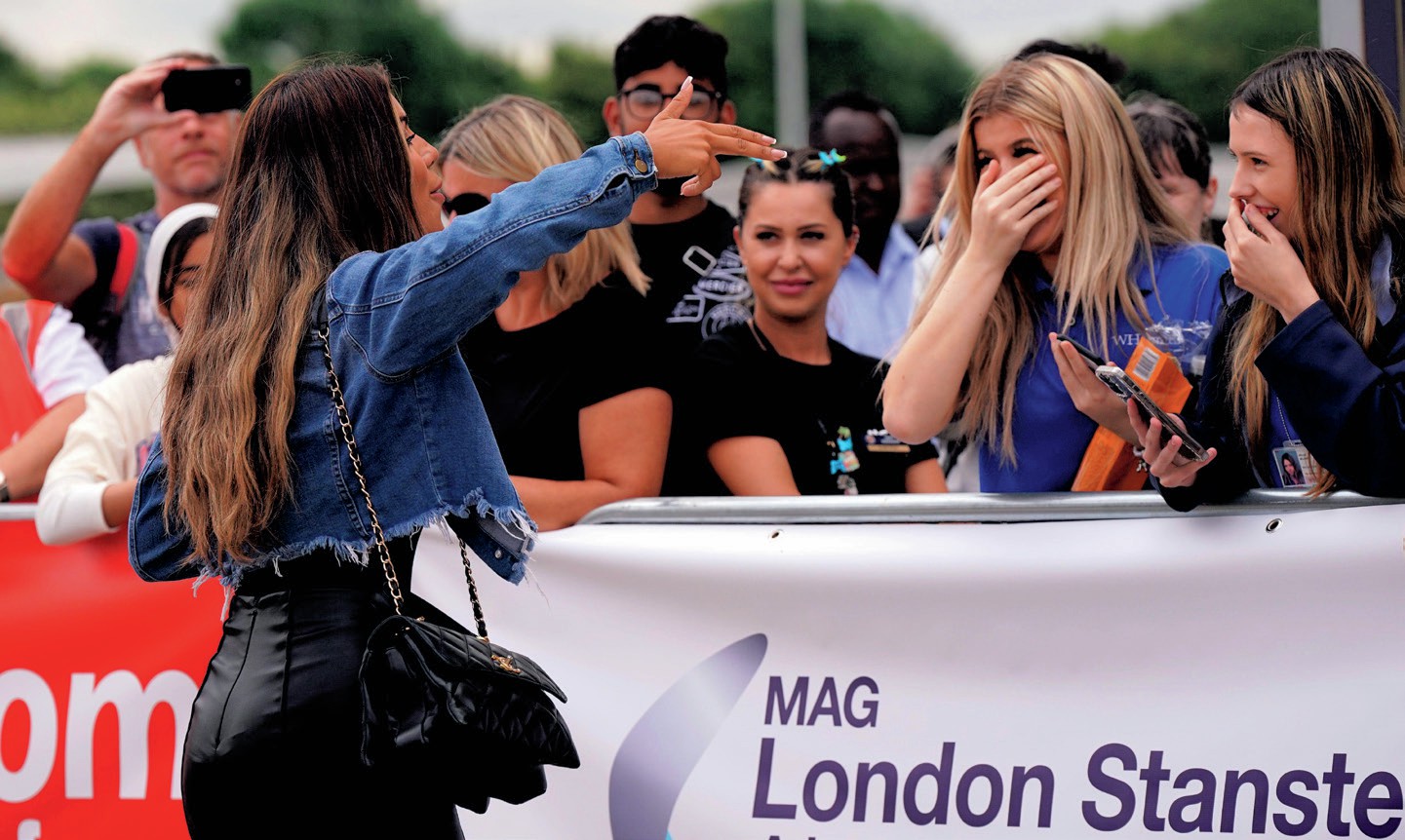
Conclusion
From a sociological perspective, the debate continues as to whether Love Island and other romance-based reality television shows are perpetuating problematic, racialised and heteronormative ideas about beauty, bodies and sexual attractiveness, or whether they are helping us to become more collectively reflexive and critical about these intimate forms of inequality. As I have argued here, it is very likely that they are doing both simultaneously. One thing, though, is clear — analysing these highly popular TV programmes can give us vital insights into the roles that love, romance and psychic suffering play in an intensely mediated and deeply unequal social world.
KEY POINTS
■ The author considers some of the reasons for the popularity of reality TV shows concerned with dating and romance, and examines some of the effects they have on society.
■ She looks at the issue of the emotional pain, or ‘psychic suffering’, experienced by many people, and argues that although these are felt as individual distress, the causes are actually structural and a feature of capitalism, linked to income inequality and insecurity.
■ In the light of these issues, some people turn to romance, love and marriage as an antidote.
■ However, embedded into reality TV shows such as Love Island are issues of ‘sexual racism’ and misogyny, and the reinforcement of heteronormality.
■ Nevertheless, despite reinforcing these negative things, one effect of such shows is that it gets people talking about such issues.
EXAM-STYLE QUESTION
Explain and briefly evaluate the view that notions of ‘romantic love’ are increasingly important in contemporary society.
(OCR-style question, 16 marks)
As well as this article, those by Jacqui Gabb (page 10) and Katherine Twamley (page 18) provide useful information. This article gives you one view of why ‘romantic love’ is important — you might want to introduce the concept of ‘emotional pain’ or ‘psychic suffering’ and how these might be linked to structural issues. Evidence is also offered for the interest in reality TV shows concerned with romance and dating.
Jacqui Gabb discusses how the idea of ‘coupledom’ is important but can mean different things, while Katherine Twamley explores important cultural differences in choosing a partner. You might also want to discuss ideas of the ‘perfect couple’ and the issues of ‘sexual racism’ in TV shows and dating apps.
There are many ways that this question could be tackled, and remember that there are only 16 marks available, so you need to plan your answer carefully and not get side-tracked. Remember that you are asked to ‘evaluate’ the view, so you need to draw your arguments together in a conclusion that arises from your preceding arguments. You may wish to decide whether the evidence supports the view that ideas about romantic love are ‘increasingly’ important, or question whether all social groups are equally influenced by the view.
RESOURCES
Bedi, S. (2015) ‘Sexual racism: intimacy as a matter of justice’, The Journal of Politics, Vol. 77, No. 4, pp. 998–1,011.
Brown, W. (2004) ‘After marriage’ in J. Cohen and D. Chasman (eds) Just Marriage, Oxford University Press, pp. 87–92.
Illouz, E. (2012) Why Love Hurts: a sociological explanation, Polity.
Illouz, E. (2019) The End of Love: a sociology of negative relations, Oxford University Press.
Hutson, J., Taft, J., Barocas, S. and Levy, K. (2018) ‘Debiasing desire: addressing bias and discrimination on intimate platforms,’ Proceedings of the ACM on Human–Computer Interaction Vol. 2, No. 73, pp. 1–18.
Kay, J., Wood, H. and Kennedy, M. (eds.)
(2019) The Wedding Spectacle Across Contemporary Media and Culture: something old, something new, Routledge.
Srinivasan, A. (2018) ‘Does anyone have the right to sex?’ London Review of Books, Vol. 40, No. 6. Available at: www.tinyurl.com/f6hkstab.


